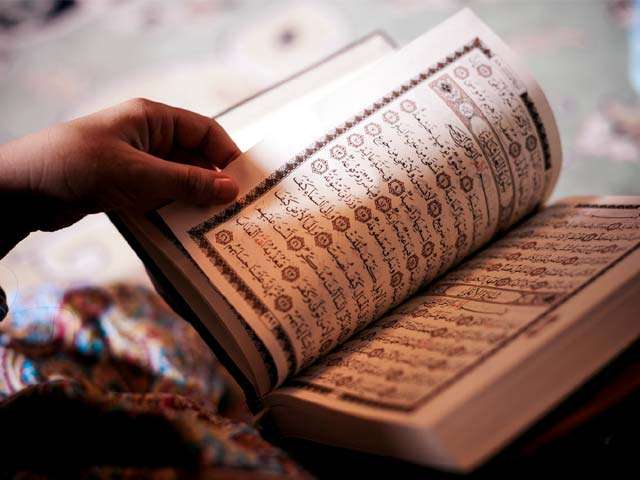Ashab-e-Suffa – Express Urdu
The literal meaning of Sufa is a canopy and a shady place, while the books of Sirat describe the shady platform that the Holy Prophet (SAW) built for the homeless emigrants in the vicinity of the Prophet’s Mosque (Hujra Mubarak) upon arriving in Madinah after the Hijrah. .
Among them were the blind Muslims and the poor who were grateful who were not only patient with their poverty but were more thankful and happy than the rich and the rich. When he used to come to the Court of Prophethood and Messenger (PBUH) for the purpose of listening to Hadith Qudsiya and the words of the Prophet (PBUH), he used to lie down here. People used to remember these gentlemen by the name of Companions of Sufa. As if this was the monastery of Basheer, Nazir and Prophet.
Among the famous Companions of the Companions of Sufa are Abu Zar Ghafari, Ibn Yasir, Salman Farsi, Suhaib Rumi, Bilal, Abu Hurairah, Uqbah bin Amir, Khabab bin Art, Huzaifah bin Yaman, Abu Saeed Khudri, Bashir Ibn Khasisa Radwan Allah Anhum. Names are listed in biographical books. This verse was revealed about these gentlemen, meaning: “And keep yourselves firmly with those who call upon their Lord in the morning and in the evening because they seek His pleasure.” And your eyes should not be diverted from such people in search of the beauty of worldly life.” (Al-Kahf)
Ashab-e-Suffah (may Allah be pleased with him) was a group of Gods of Tawakwal and Tablat who dedicated their lives to religious education, propagation of Islam, Jihad and other services. They were neither interested in trade nor interested in agriculture. Day and night, he used to attend the service of the Holy Prophet (peace and blessings of Allah be upon him) for self-purification and learning of the Book and wisdom, and used to do dhikr and talks there.
Sufa was not only a platform, but it was a place of religious teaching and spiritual training for the Companions. Here they need to be related to Allah, love the Messenger ﷺ, avoid materialism, concern for the Hereafter, self-sufficiency and contentment, wisdom and wisdom and modesty and simplicity in order to take over the business of the earthly caliphate in the form of the Book of Allah and the Sunnah of the Messenger ﷺ. Where a lot of training was given. After the Ahl al-Bayt, the Companions of Sufa were among the closest people to the Messenger of Allah (PBUH).
History is a witness that before accepting Islam, some Companions were the chiefs and respected elders of Sufa clans and regional groups, but the light of Islam and faith and the light companionship of the Holy Prophet ﷺ made them leave the mortal world and become essential for eternal life. made Ghazi of In the history of Islam, the Ashab-i-Suffa have the central position and the basic position of leading the way for the sacrifice of life and property and leaving the country for the Muslim Ummah. Protection of religion, research of religion, dissemination and publication of religion, these gentlemen have gained a key position among the Companions of the Prophet (peace be upon him). These same Companions had the teachership of the Holy Prophet (PBUH) and the honor of being a student.
The aim of this school, which is known in history as Sufa, was to prepare a congregation for the propagation and propagation of the religion of Islam, which would be in the service of the Holy Prophet ﷺ day and night and learn the secrets of the Shariah. Be familiar with all the Islamic symbols. Be enlightened by the light of the companionship of the Prophet in speech and character, in sitting and standing, and in words and deeds.
The Companions of Safa were busy day and night in self-purification, education and training, remembrance and contemplation, worship and recitation, neither did they have an eye on the glitter of the world, nor did they have anything to do with business, trade and agriculture, they were bankrupt and They were poor. They did not have enough cloth to cover their head and feet together. They had no food and drink, they would fall down while praying due to hunger and vision, those who were not aware of their condition thought that they were mad. These words have been mentioned in Holy Qur’an for these holy souls, meaning:
“Deserving are the poor who have bound themselves in the way of Allah in such a way that they cannot walk in the land (to earn a living). Because they are so pure that they do not question anyone, they are considered rich by uninitiated people. You can recognize their (inner state) by the signs on their faces (but) they do not hug people and ask questions, and whatever wealth you spend, Allah is well aware of it.” (Al-Baqarah)
The commentators agree that this verse was revealed about the souls of Qudsiya whose only purpose in life was religious education and jihad. The practice of reading and writing was very rare among the Arabs, the Prophet ﷺ gave primary importance to education by establishing Madrasa al-Sufa and paid full attention to reading and writing, even though teachers were also appointed for the education of al-Sufa. Hazrat Ubada RA used to teach writing along with the Holy Qur’an, but those who could not pay the ransom were released on the condition that they stay in Madinah and teach people to read and write. Those who received education from this school were called Qara in the term. People were sent from among them for invitation and preaching. Seventy of them were sent in a battle and were martyred. When the Holy Prophet (PBUH) was informed about this, he was so shocked that he continued to pray for these oppressors in Qunut-e-Nazla for a month.
The students of Sufa did not limit themselves only to learning the knowledge of religion and worshiping, but also actively participated in the collective works of Muslims and in the battlefield and performed great feats in the field of Jihad. The fact is that they were scholars of religion, monks of the night and knights of the day. How many Companions of Sufa were martyred in Karzar field. Among them, Hazrat Safwan bin Baida, Khuraim bin Fatak, Khabib bin Yasaf, Salim bin Umair and Haritha bin Numan, may God bless him and grant him peace, drank the cup of martyrdom in the Battle of Badr. Hazrat Hanzala was martyred in the Battle of Uhud and was bathed by the angels. In the battle of Khyber, Hazrat Thaqaf bin Umar, in the battle of Tabuk, Hazrat Abdullah Dhu al-Bajadeen (the one with two cloaks), and in the battle of Yamama, Zaid bin Khattab and Hazrat Salim Mouli Buhudhaifa bin Yaman were martyred. These are the great services of Ashab-i-Suffa for the religion of Islam, which will be written in golden words in history for the rest of the world.
Ashab-e-Suffa – Express Urdu

